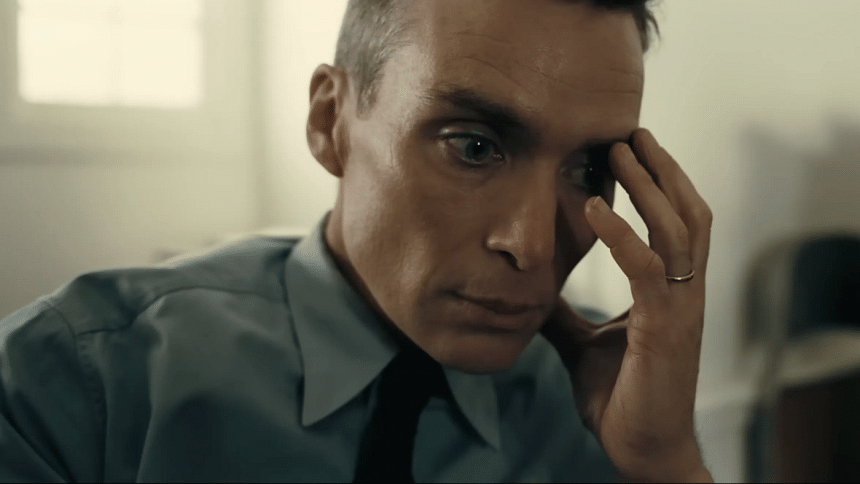Oppenheimer: Nolan’s richest masterpiece till date

The pressure was well-and-truly on Christopher Nolan leading up to Oppenheimer. Braving the burdens, the British-American filmmaker has managed to deliver something special.
Oppenheimer was the manifestation of the type of story Nolan had been itching to tell all his career. It represents him in a microcosm – a deep, emotionally layered story, harrowingly combining scientific, social, and political intricacies of the 1940s.
For someone with no knowledge of the book American Prometheus – a 2005 biography of theoretical physicist J. Robert Oppenheimer – the tale will be difficult to keep track of. The last hour of the film, full of defining exchanges in Oppenheimer and Lewis Strauss's security hearings, might look confusing to some fans. But this is where the beauty of Oppenheimer lies. It perfectly captures the chaotic, emotionally draining, and painfully glorious life of the father of the atomic bomb.
The unorthodox storytelling kept me glued to the edge of my seat. Following a brief intro of Oppenheimer's younger days, it all bounced between the hearings of Oppenheimer and Strauss and the climax of the Trinity Test and its aftermath. The use of subtle colour gradients and black-and-white imagery only added to the tension of the film.
The epic scores added a new dimension to the film. Thanks to the genius composition of Ludwig Goransson, fans lived the movie through their screens. Much like Nolan promised, fans felt the explosion of the Trinity Test. The VFX and sound work done to include Oppenheimer's words "now I am become death, the destroyer of worlds" only added to its poetic nature.
Nolan's development of major characters in a relatively short time is commendable. At the very least, it gave us a vague idea of the mental strains of Jean Tatlock, the grittiness of Katherine "Kitty" Oppenheimer, and the tough, no-nonsense persona of General Groves.
But the stars of the show were undoubtedly Cillian Murphy, Robert Downey Jr., and Rami Malek.
Cillian looked at home from the word go. He flawlessly depicted the dazed, egotistic, and glory-obsessed scientist. He also brought Oppenheimer's social dynamics with fellow scientists and his family into life in minute details.
Cillian's intense acting for the post-Hiroshima scenes, suffering from guilt and having hallucinations of the devastation his bomb caused is one of the finest performances I have seen by a biopic protagonist. From showing Oppenheimer wilfully helping in building the bomb to his subsequent calls for dialogue and peace, Cillian left no stone unturned in his depiction of the paradox of Dr J. Robert Oppenheimer.
In contrast, Rami Malek's portrayal of David Hill has gone under the radar. It might just be a cameo, speaking very few words, but his composed acting changed the trajectory of the story, bringing the best out of Robert Downey Jr. in the following scenes. For me, Downey's portrayal of Strauss overshadows even Cillian. It would be a shame if he doesn't receive just recognition for his stunning performance in the last 40 minutes of the movie.
Oppenheimer might be no Inception or Interstellar, but the richness of the story, and the purity of his directing have ensured it's not only Nolan's richest masterpiece to date, but one of the finest movies of the 21st century as well.
Inqiad is a student of BAF SEMC

 For all latest news, follow The Daily Star's Google News channel.
For all latest news, follow The Daily Star's Google News channel. 







Comments